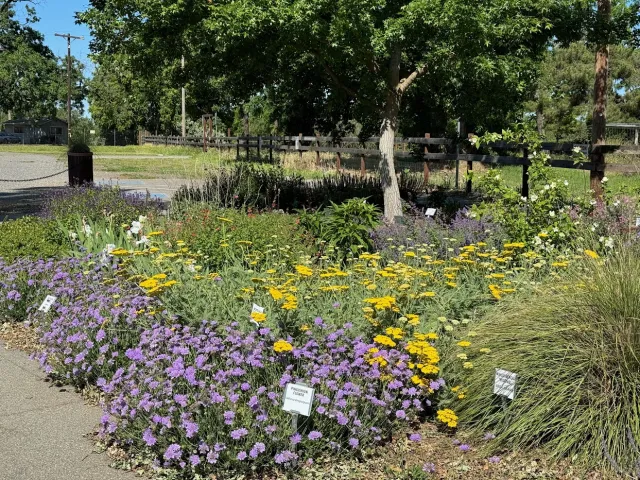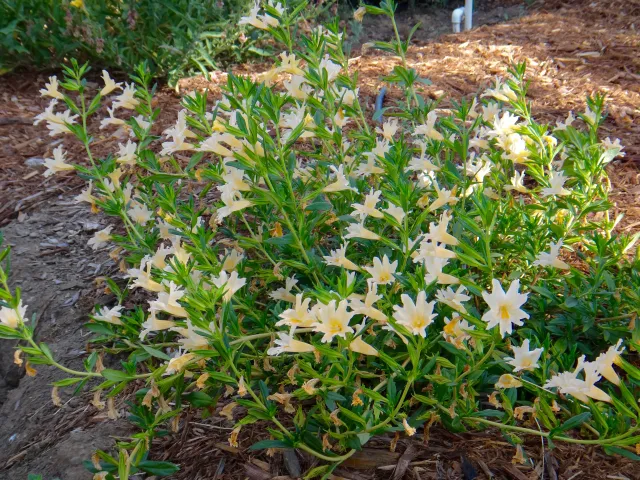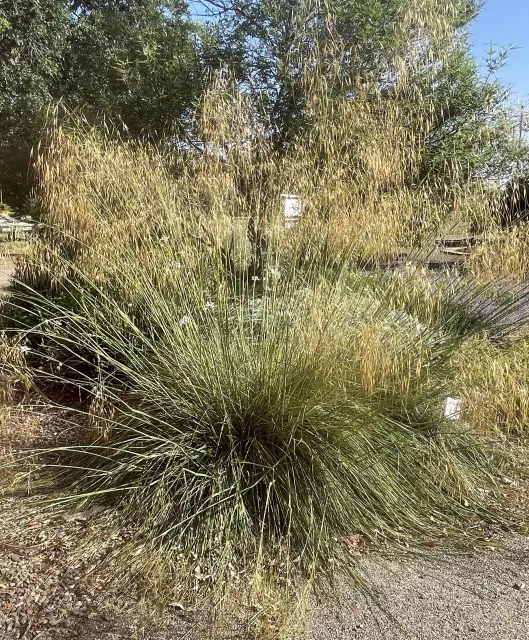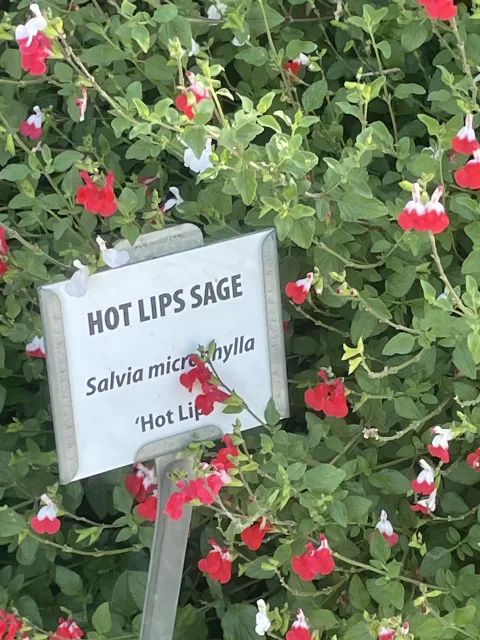By Annie Ryder
A visit to the Butte Country Master Gardeners Demonstration Garden in late May / early June promises to be an eye-opening experience. For starters, there are many plant and design possibilities for home gardeners to admire and borrow ideas from. Undoubtedly, you will find new varieties of plants and trees to consider for your yard and garden. These are the days to be planting -- before the weather turns hotter. In late spring and early summer, a gardener’s work is never done!

A word to the wise…don’t plant more than you can reasonably water and care for. Springtime energy may begin to wane as the summer months progress. In other words, start small. Next year you can always add more!
The Demonstration Garden consists of many smaller gardens and garden areas that showcase different aspects of garden content, design and function. There are no physical barriers between the individual garden areas, but each is marked with signage to identify the theme of the garden and the plants that are growing there. Gardens naturally evolve and change, so it is worth visiting the Demo Garden throughout the year. Seasonal changes make it a delightful and inspiring outdoor place to spend even half an hour. There is always something new to see and learn about in the Demo Garden.
For instance – are you interested in growing vegetables? The Edible Garden features vegetables every season. Right now, it is beginning to burst with carrots, chard, eggplant, squash, the beloved tomato, and more. The young plants are covered with hoops that support netting which deters pests both large and small. Of course, now is the time to plant warm season vegetables outdoors in soil that has been well prepared. In your own garden, be sure to incorporate compost and use mulch. Sowing new seeds every two weeks or so will give you more veggies for a longer period of time.

Flowers? In late spring and early summer there are several garden areas planted with flowering plants that grow well in our area: these include the California Native Plants Garden, the All-Stars Garden (featuring Butte County favorites) and the Mediterranean Garden (even though we live a long way from that body of water, we live in a Mediterranean climate). Explore. Investigate. Admire. Take photos. Make notes. Embrace new and unfamiliar varieties.
Many plants are blooming right now in a number of the garden areas. Always keep in mind the distinction between annuals, which are planted yearly and will go to seed at the end of the season, and perennials, which live (depending on the variety) for a few years or much longer. The perennial Sticky monkey-flower blooming in the California Native Plants Garden is a worthy contender for anyone’s sunny garden space, and will live, if happy, for three to five years.
Over in the All-Stars Garden, which features plants known to succeed in our area, a bank of lovely blue/purple pincushion flowers are highlighted against a grouping of sunny yellow yarrow. When planning to add plants to your own garden space, remember to consider the sun (or shade) requirements of your selections. For example, plants classified as “full sun” need at least six hours of sun a day. Seeing its placement in the Demo Garden can help you determine where a particular plant will best succeed in your own home garden. Equally important for a plant’s success is making sure its water needs can be met in our hot summer climate. Hydrozoning (planting flowers with similar water needs together) makes for a wiser use of both water and precious gardening time.

Grasses? There are many examples thriving throughout the Demo Garden at present, including a rather spectacular giant feather grass. They usually require little or no watering, an added benefit to including grasses in borders and beds.
Chico and its environs are ideally suited for nut and fruit agriculture. A stroll through the Heritage Orchard at the Demonstration Garden will take you back to the beginnings of our region’s success in growing almonds. There is also a small orchard of fruit trees and a wall of espaliered fruit trees (including fig and cherry), trained to grow flat against a trellis -- a great technique for those with small gardens to employ for maximizing space.
Along with the beauty and delight of a summer garden come the never-ending tasks of maintenance, irrigation, and weeding. In May and June new weeds appear daily and seem to grow taller overnight! It is a constant challenge that takes understanding (is that a weed?) and perseverance. Weeding may get one’s fingernails dirty but it is the best alternative to the use of environment-damaging pesticides. Early morning, when the ground is cool (and possibly damp) is the best time to weed; a thick layer of mulch (two to four inches deep) will help keep weeds from proliferating.
The Butte County Master Gardeners who volunteer at the Demonstration Garden spend countless hours weeding, propagating new plants from clippings, starting seeds, mulching, composting, and fertilizing the growing plants with the compost that is made on site. They are on the lookout for insects that are beneficial to the garden and for other living things that damage the plants and trees. They use preventative measures whenever possible and practice Integrative Pest Management (IPM) to lessen impact on the ecosystem.

Visit our website for more information on the Demonstration Garden including a tour map.
In addition to being a great time to visit the Demonstration Garden for garden inspiration, the spring and summer months also provide many opportunities to focus your learning on specific topics featured in the Master Gardener Spring 2025 Workshop Series, many of which are held at the Demo Garden. While this year’s series is now winding down, there are still three workshops on offer in May and June: Garden Tool Maintenance and Care (May 24); Succulents (June 3); and “Black Gold” Vermiculture (worm composting; June 6). For full workshop descriptions and to register, visit our website.
UC Master Gardeners of Butte County are part of the University of California Cooperative Extension (UCCE) system. To learn more about us and our upcoming events, and for help with gardening in our area visit our website. If you have a gardening question or problem, email the Hotline at mgbutte@ucanr.edu or leave a phone message on our Hotline at 530-552-5812. To speak to a Master Gardener about a gardening issue, or to drop by the MG office during Hotline hours, see the most current information on our Ask Us section of our website.

